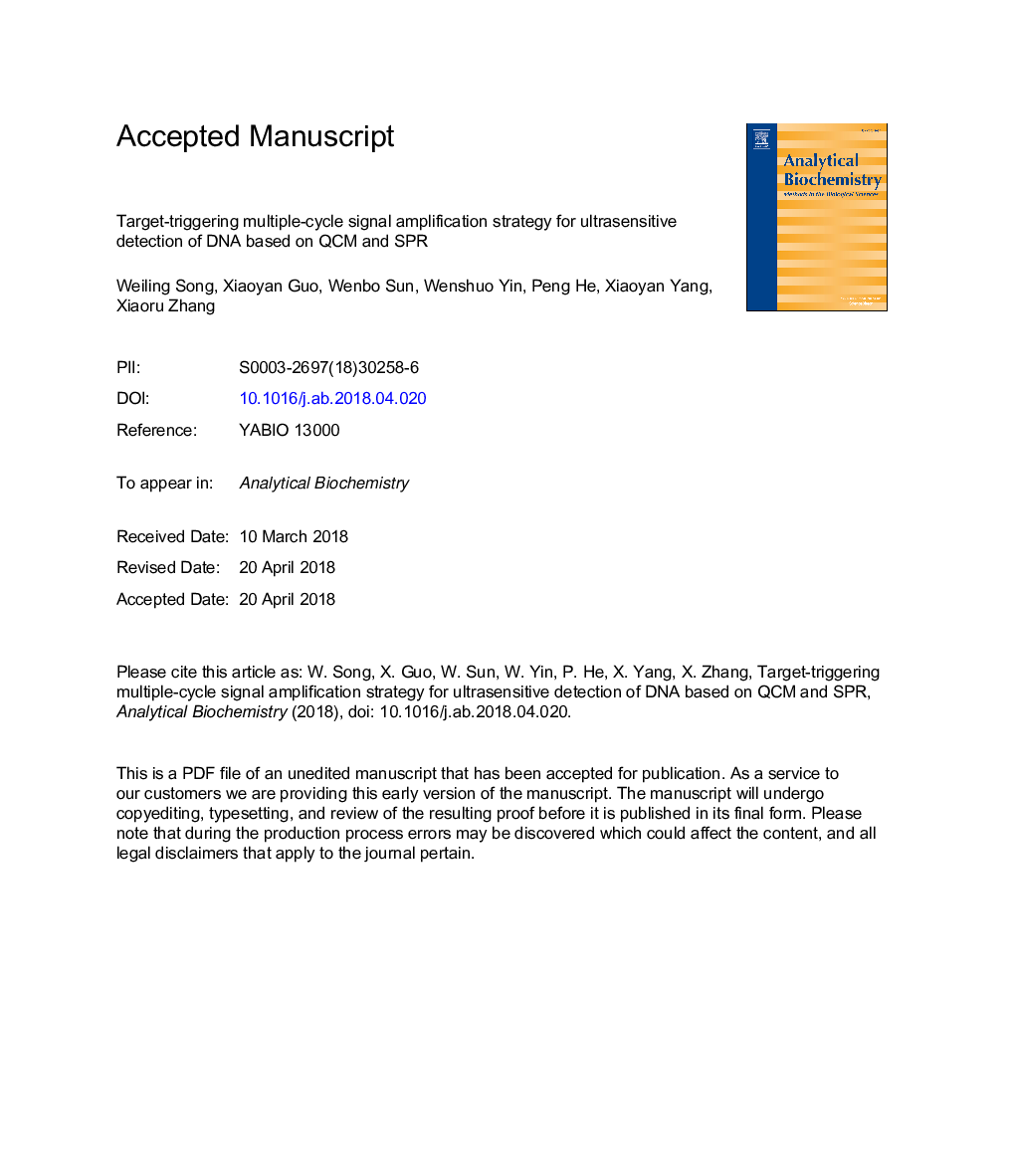| کد مقاله | کد نشریه | سال انتشار | مقاله انگلیسی | نسخه تمام متن |
|---|---|---|---|---|
| 7556733 | 1491295 | 2018 | 19 صفحه PDF | دانلود رایگان |
عنوان انگلیسی مقاله ISI
Target-triggering multiple-cycle signal amplification strategy for ultrasensitive detection of DNA based on QCM and SPR
دانلود مقاله + سفارش ترجمه
دانلود مقاله ISI انگلیسی
رایگان برای ایرانیان
کلمات کلیدی
موضوعات مرتبط
مهندسی و علوم پایه
شیمی
شیمی آنالیزی یا شیمی تجزیه
پیش نمایش صفحه اول مقاله

چکیده انگلیسی
Detection of ultralow concentrations of nucleic acid sequences is a central challenge in the early diagnosis of genetic diseases. Herein, we developed a target-triggering cascade multiple cycle amplification for ultrasensitive DNA detection using quartz crystal microbalance (QCM) and surface plasmon resonance (SPR). It was based on the exonuclease â
¢ (Exo â
¢)-assisted signal amplification and the hybridization chain reaction (HCR). The streptavidin-coated Au-NPs (Au-NPs-SA) were assembled on the HCR products as recognition element. Upon sensing of target DNA, the duplex DNA probe triggered the Exo â
¢ cleavage process, accompanied by generating a new secondary target DNA and releasing target DNA. The released target DNA and the secondary target DNA were recycled. Simultaneously, numerous single strands were liberated and acted as the trigger of HCR to generate further signal amplification, resulting in the immobilization of abundant Au-NPs-SA on the gold substrate. The QCM sensor results were found to be comparable to that achieved using a SPR sensor platform. This method exhibited a high sensitivity toward target DNA with a detection limit of 0.70â¯fM. The high sensitivity and specificity make this method a great potential for detecting DNA with trace amounts in bioanalysis and clinical biomedicine.
ناشر
Database: Elsevier - ScienceDirect (ساینس دایرکت)
Journal: Analytical Biochemistry - Volume 553, 15 July 2018, Pages 57-61
Journal: Analytical Biochemistry - Volume 553, 15 July 2018, Pages 57-61
نویسندگان
Weiling Song, Xiaoyan Guo, Wenbo Sun, Wenshuo Yin, Peng He, Xiaoyan Yang, Xiaoru Zhang,